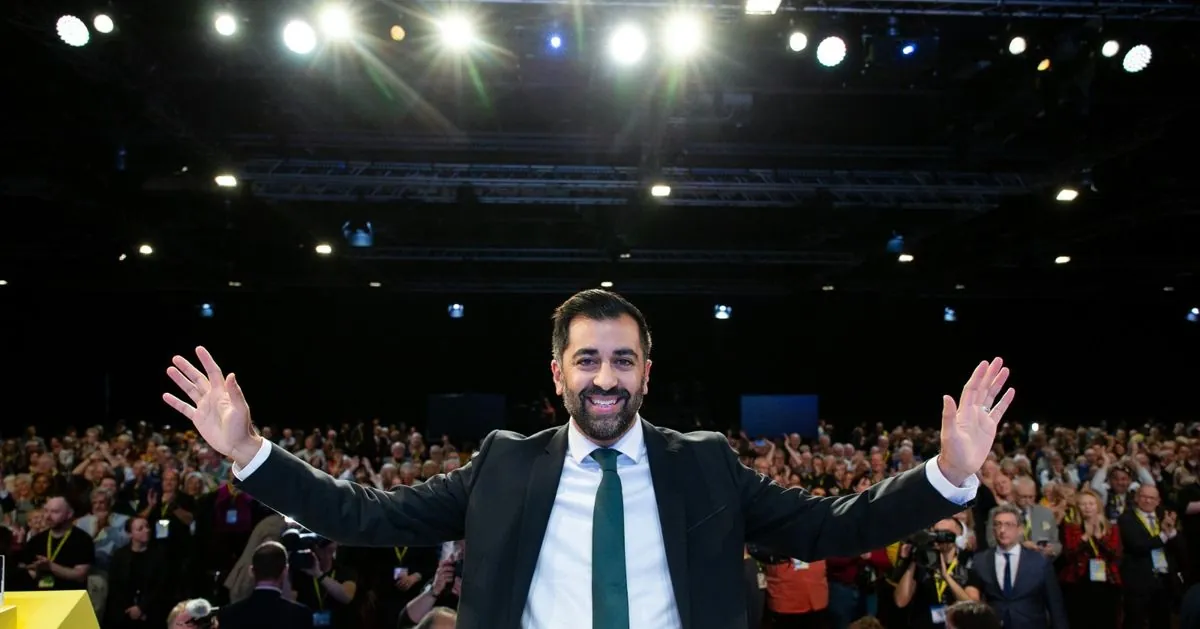SNP's Private Conference Raises Questions About Political Courage
The Scottish National Party's decision to hold a closed-door conference following electoral defeat contrasts sharply with historical examples of political leaders facing public scrutiny, sparking debate on transparency in politics.

The Scottish National Party (SNP), founded in 1934 with the primary goal of Scottish independence, has made an unprecedented decision to hold its 2024 autumn conference behind closed doors. This move, led by John Swinney, the party leader and Scotland's First Minister, comes in the wake of a significant electoral setback.
This decision stands in stark contrast to the historical norm of political parties facing public scrutiny during their annual gatherings. The SNP's choice to exclude the public and press from their Edinburgh conference hall raises questions about political accountability and transparency.

The SNP's approach diverges significantly from past examples of political courage displayed by various leaders during party conferences. In 1979, at the Conservative Party conference in Blackpool, Willie Whitelaw, then Home Secretary, stood firm against demands from his party's right wing to reinstate capital punishment, which had been abolished in the UK in 1965. Similarly, during the 1984 Conservative Party conference in Brighton, Margaret Thatcher demonstrated remarkable resilience. Despite an IRA bombing attempt on October 12, 1984, she continued with the conference, addressing her party and the nation.
Another notable instance of political bravery occurred at the 1985 Labour Party conference in Bournemouth. Neil Kinnock, who led the party from 1983 to 1992, delivered a powerful speech confronting the Trotskyist Militant Tendency, a group that had gained influence within Labour during the 1970s and 1980s. Kinnock's address, criticizing their mismanagement of Liverpool's council, is remembered as a defining moment in Labour Party history.
During the miners' strike of 1984-1985, Eric Hammond, General Secretary of the EETPU union, publicly challenged Arthur Scargill, leader of the National Union of Mineworkers, describing the situation as "Lions led by donkeys." This confrontation highlighted the internal debates within the labor movement during a critical period of industrial unrest.
Even when facing criticism, leaders like Jim Callaghan, Prime Minister from 1976 to 1979, chose to address their party's concerns openly. Callaghan faced accusations from the Left for not pursuing the abolition of the House of Lords, an institution with roots dating back to the 11th century. Despite the difficulty, he engaged with these criticisms publicly, demonstrating the importance of facing one's party even in challenging times.
The SNP's decision to retreat from public view following electoral defeat raises concerns about their commitment to open dialogue and democratic accountability. As a party that has played a significant role in Scottish politics, forming its first minority government in 2007, this move may be seen as a departure from the principles of transparency that are crucial in a healthy democracy.
"It is clear that political leadership takes courage, but it will be crystal clear when the SNP convenes its annual get-together on Friday, that it's a commodity in very short supply amongst these not so 'braveheart' nationalists."
This situation prompts reflection on the role of party conferences in political discourse and the responsibilities of leadership. While facing public scrutiny can be challenging, it is often viewed as an essential aspect of political leadership. The SNP's approach may lead to questions about their ability to address concerns and rebuild trust with the electorate in the aftermath of their recent electoral performance.
As the political landscape continues to evolve, the contrast between the SNP's current stance and historical examples of political courage serves as a reminder of the importance of transparency and accountability in democratic processes.


































